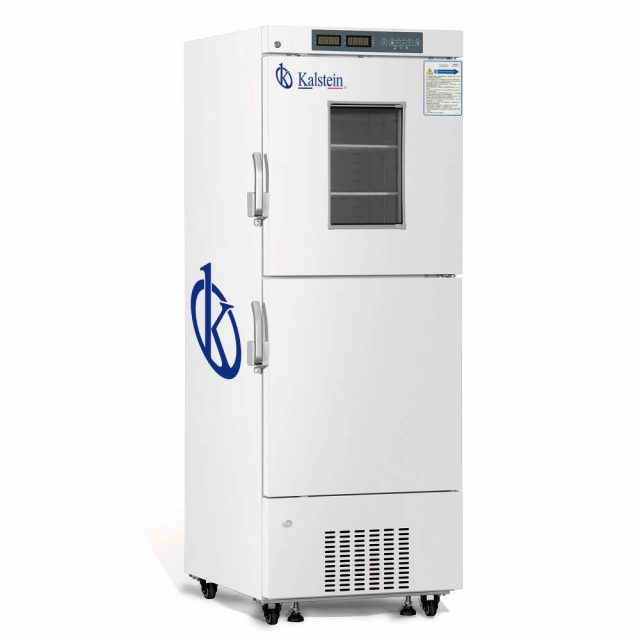Laboratory freezers are equipment usually used to store samples and store them at certain temperatures, have certain characteristics that favor their operation, have a selection of internal storage compartments, which can be configured by the user, designed in durable and resistant material such as stainless steel or aluminum.
The designs and temperatures of laboratory freezers depend on the needs of each sample, the usefulness and application required by the samples, can store cryogenic samples, microplates or cryotubes; so deciding which to buy is easy thinking about the needs of the samples, the temperatures of the same vary according to the demanding requirements of daily use in research laboratories, clinical and industrial that store non-critical products such as media, proteins.
Types of laboratory freezer temperatures
The different types of temperatures we can find in a freezer will vary from general use to cryogenic storage, so we have from a minimum temperature of -25 °C in general use freezers and other minimum temperatures ranging from -70, -75, -80 °C in ultra low temperature freezers; However, finally -85ºC became the standard of the laboratory.
In the case of our brand KALSTEIN we can find the cryofreezer with a microprocessor controlled system designed for controlled range of -40 Μg to -150 ℃ for cabinet space with increment of 1 ℃, freezer combined with 10~321℃, low temperature freezer -10~-40℃, horizontal freezer of “-10 ~ -60 ° C, vertical freezer -10 to -86 ° C, ultracongelador of -40 to -86 ° C each type has different models according to their laboratory needs and that you can know in the following link HERE
General characteristics of laboratory freezers
- Energy consumption through an efficient cooling system.
- Touch screens with a simple and easy design.
- Doors with more safety and automatic, which avoid the escape of temperature.
- Alarms to detect excess temperature.
- Ability to download data to a USB.
- Remote temperature control.
- Very efficient pump systems for fast cooling periods.
- Forced air systems in circulation by fan to remove moisture and minimize ice formation.
- Automatic gas defrosting systems.
Uses of laboratory freezers
These equipments ensure the efficient and effective storage of flammable samples, reagents, products, chemicals, toxic substances, vaccine cooling, blood plasma and many other biological materials, are widely used in research institutions and clinical sites in life sciences, electronic tests and medical markets, hence the importance of this equipment in a laboratory, but above all of knowing how to choose the right one according to the specifications and requirements of the sample.
Long-term storage of various biological products, including viruses and germs. erythrocytes, leukocytes and skin. Applications can be found in blood banks, hospitals, epidemic prevention services and research institutes, laboratories in chemical and electronic plants. biological engineering institutes and marine fishing companies, because of this it is important to choose the best option and that is KALSTEIN.
What to consider to buy a KALSTEIN-branded freezer
The things you should consider when buying a freezer are, among others, the size, where it will be installed, the number of grilles you need, the type of door, which side the door opens to and the type of warning alarm you need. KALSTEIN has different refrigerators and freezers that offer different temperatures and capacities, our own YR range.
If you want to know the catalog of products to buy some of the freezers that we have for you, just visit us on our website, we guarantee an interesting tour of the high range of products that in Kalstein we have for you, in addition you will be able to request technical service, trust us and we assure that through our online buying-selling channels that are very easy and viable, do not hesitate further and go to the following HERE reminding you that we are Company manufacturer of High Level Laboratory Equipment.

